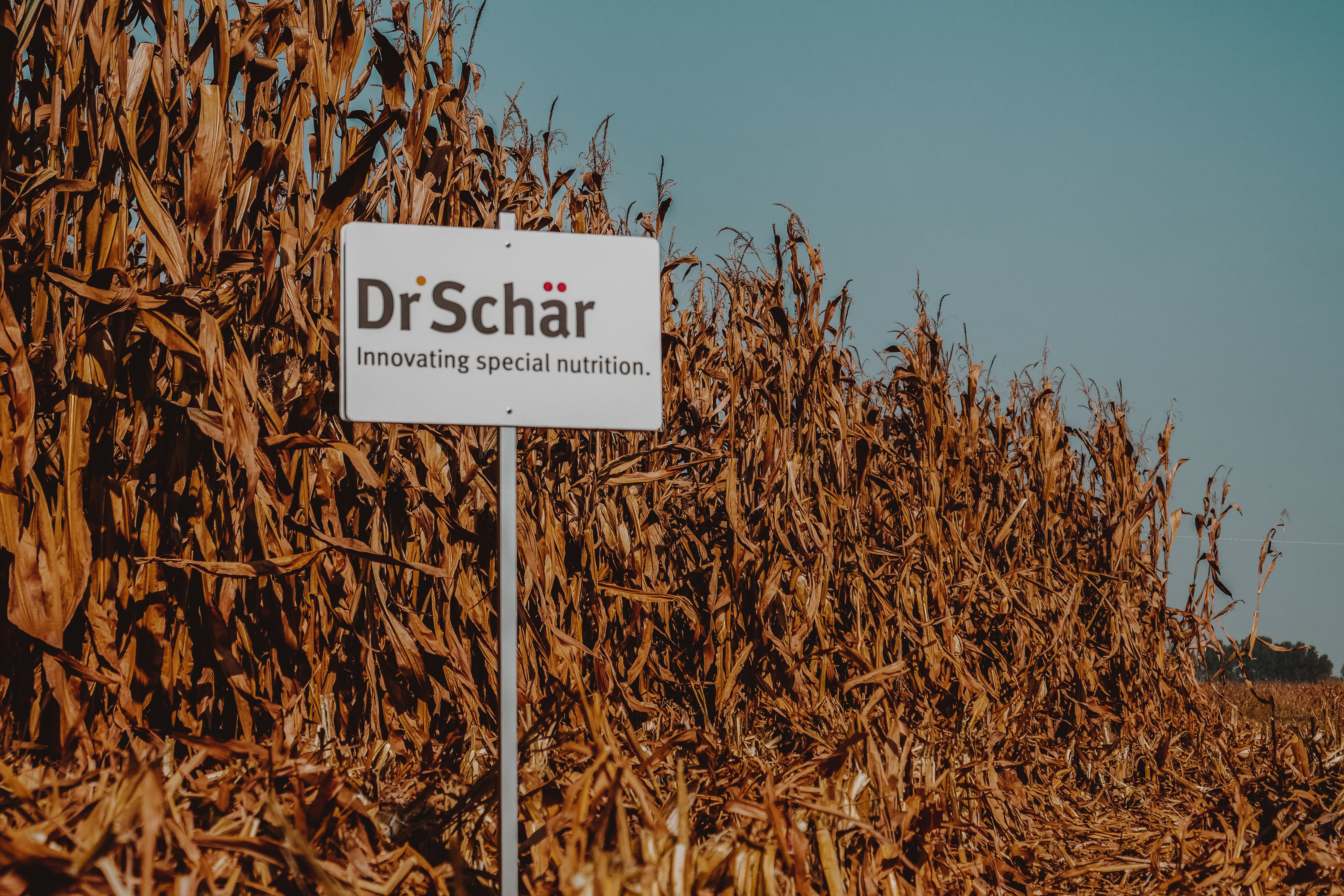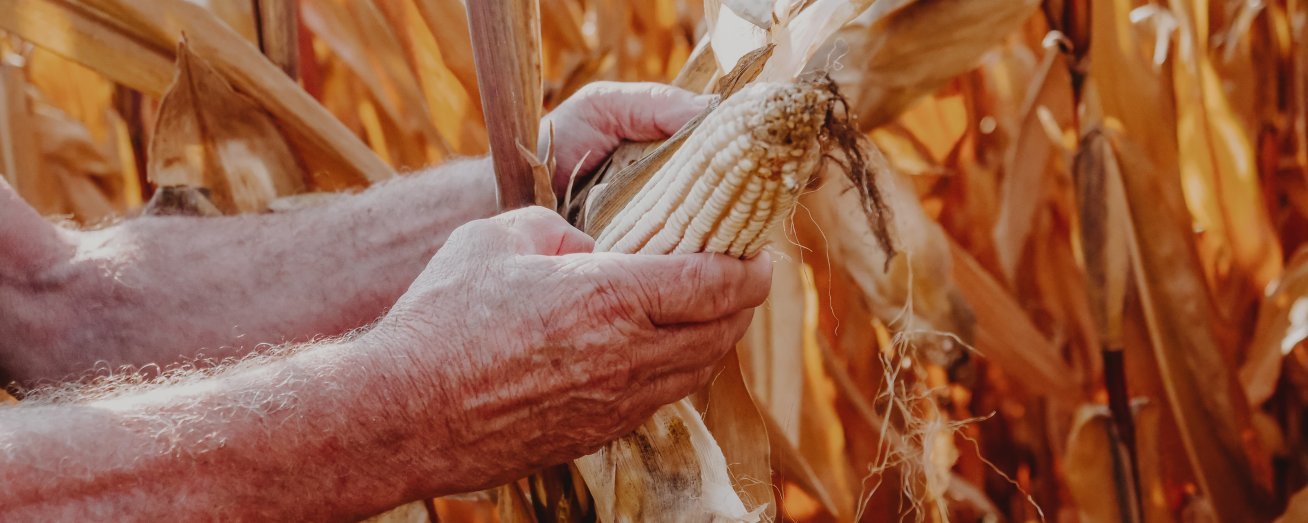At Dr. Schär, we take our responsibility as a manufacturer of gluten-free products very seriously. After all, a gluten-free diet is not only a question of taste, but also of trust. Our promise to consistently meet the highest standards of quality, safety and sustainability is reflected throughout the entire “filiera” (Italian for “value chain”). We accompany our products throughout their entire life cycle. Thanks to close cooperation with scientists, farmers and millers, we are involved in the filiera from seed research to the supermarket.
To understand how this works exactly, we follow the journey from corn to pasta: It is late summer and therefore harvest season. This is true not only for vegetables, but also for some cereals, such as the maize on the fields of our contract farmers in Cremona, in the northern Italian region of Lombardy. In the midst of Po Valley lies one of the most fertile regions in Italy, where wine, sugar beet and the maize for our gluten-free products thrive ideally. The north of Italy is the heart of our filiera, even if in recent years we have built up a network of selected partner farmers that stretches from Spain to Poland.

The filiera concept: close partnerships going hand in hand with research and development
Italy is also the “origin” of our filiera, which begins even before sowing in our Area Science Park in Trieste. Here, our research team of agronomists, food technologists and food chemists investigates which varieties are best suited for our gluten-free products. For example, it is important to determine the balance of nutritional profiles or baking behaviour of the raw materials to meet production requirements as well as consumer expectations. Once these parameters are set, the next step of the filiera takes place on the fields.
In cooperation with our farmers, we develop a cultivation plan which specifies the seeds to be used and the distance to neighbouring fields. The latter is important to ensure that gluten or other allergens, heavy metals or fungal toxins do not contaminate the harvest. To check the health of the plants and the harvest, Dr. Schär’s agronomists regularly visit the fields for measurements and taking samples.
Our farmers welcome this kind of close advice and support. By implementing new process technologies, we help to improve soil management. For example, water consumption and the use of fertilisers can be minimised through innovative methods. Also, alternating crop rotations of different grain varieties promotes the natural balance in the soil and increases the natural nutrient content of the cereals. In this context, Dr. Schär is promoting the cultivation of millet, buckwheat and oats as alternatives to monocultures in the Alpine region with the Re-Cereal research project.
From the best seeds to tasty pasta: safety at every step of production
To process the maize from Cremona into flour for delicious pasta and crusty bread, the maize is transported to one of our contracted grain mills after harvesting. As the risk of contamination by fine flour dust would be very high in a mixed grain mill, Schär products are only processed in mills that exclusively grind gluten-free grain.
Before the flour is used in production, it passes our in-house quality control - like any raw material. In this way, we ensure that all Schär products are gluten-free and safe: in our products, our consumers will not find artificial sweeteners, flavour enhancers, colourings or ingredients from genetically modified organisms.
We see our filiera as “accompagnata”, i.e. as accompanied by us in every step of the way. The various checkpoints from the seed to the end product as well as the close cooperation with our partners enable transparency. Thus, we can trace the origin of the raw materials, the cultivation methods and the further processing without any gaps. This is particularly important for gluten-free food in order to guarantee its purity and to ensure consumer safety.
